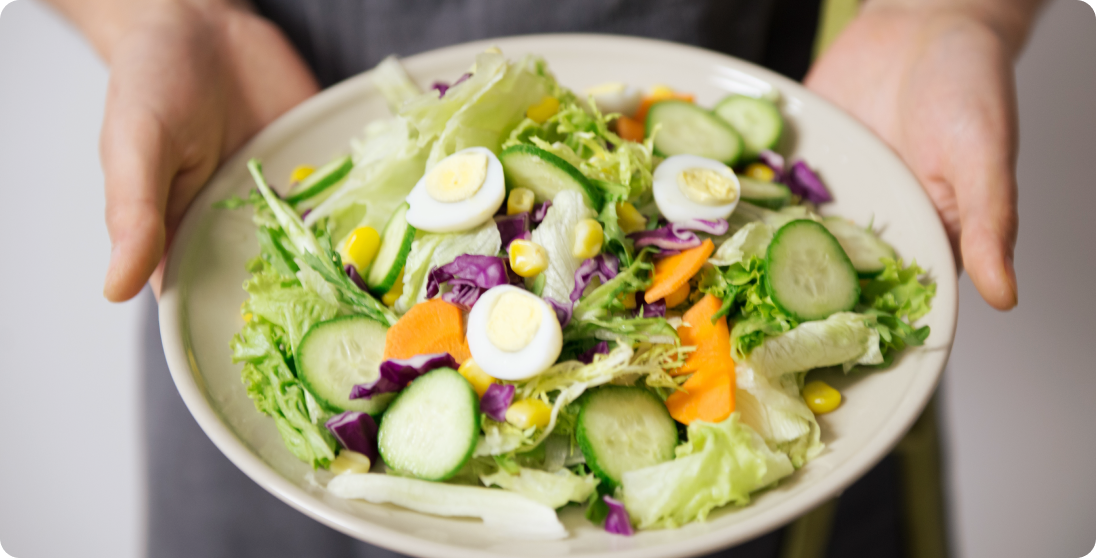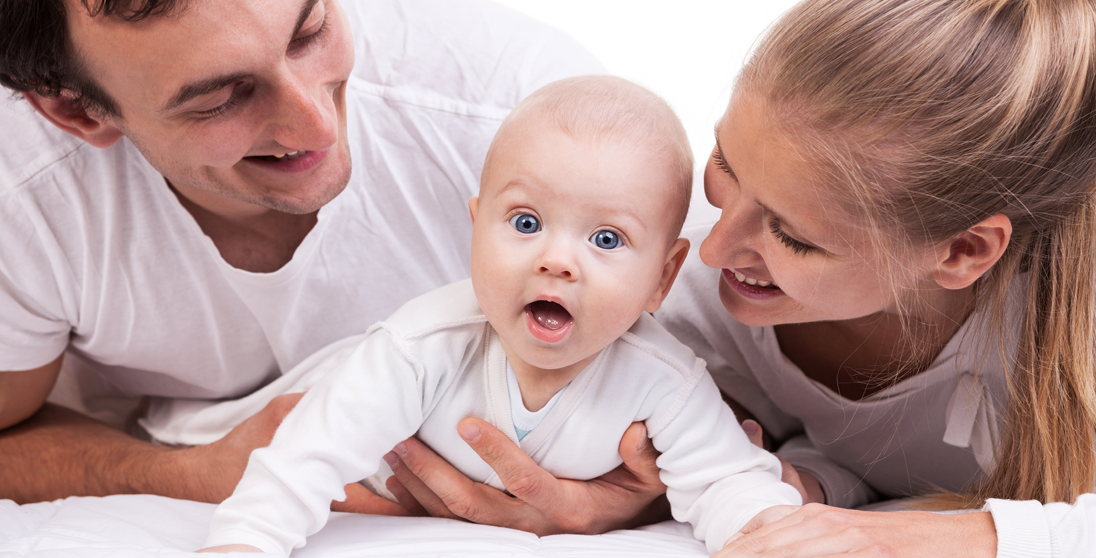


IVF Diet and Lifestyle
Adhering to the reproductive health recommendations can enhance the capacity of your eggs and sperm to result in a healthy baby


Your lifestyle, IVF diet, stress levels, physical activity, and exposure to factors that may damage eggs or sperm all play a decisive role in your probability of success, particularly as you advance in age (35 and older).
Reproductive treatments require active participation from both partners in the process, starting as early as possible before the beginning of your treatment.
Fertility treatment cannot improve the quality of eggs and sperm, but closely adhering to the following reproductive health recommendations can enhance the capacity of your eggs and sperm to result in a healthy baby.
IVF Diet and Reproductive Health
- Optimize Your Body’s Acid-Alkaline Balance: Maintaining a proper blood pH balance is essential for fertility. Minimize the consumption of acidic foods, especially foods made from grains (flour), corn products, most dairy, and processed meat. Increase the intake of alkaline foods such as apples, carrots, grapes, and leafy vegetables.
- Avoiding Pesticides: Choose organic produce whenever possible to reduce pesticide exposure. If organic options are unavailable, still include fruits and vegetables to promote reproductive health.
- Omega-6 to Omega-3 Ratio: Decrease the consumption of omega-6 fatty acids found in corn, grains, and vegetable oils, and minimize trans fats. Instead, increase your intake of omega-3-rich foods such as deep-sea fish, seaweed, flaxseed oil, seeds, and certain vegetables. Consider taking high-quality omega-3 supplements.
- Reduce Your Dietary Glycemic Load: Limit the consumption of high-glycemic foods like sugar, potatoes, and foods made from flour, such as bread, pasta, pastries, cereal, and more. Instead, focus on low-glycemic options such as fruits, vegetables, legumes, seeds, nuts, and seafood.
- Address Reproductive Hormone Imbalance: Avoid or minimize the consumption of foods high in sugar, flour, caffeine, nicotine, alcohol, and processed foods. Limit the intake of unfermented soy products and be mindful of toxic plastic additives (phthalates) in certain plastics and canned foods.
- Prevent Nutritional Deficiencies: Consistently take high-potency multivitamins to improve reproductive health and reduce the risk of birth defects.
IVF Lifestyle and Reproductive Health
- Exercise has a significant impact on improving insulin sensitivity and decreasing insulin resistance. Frequent and consistent exercise by both partners, if applicable, is critical for good reproductive health and is a part of your treatment at Bay IVF.
- Stress: Managing stress is essential for reproductive health. Engage in relaxation techniques, meditation, or counseling to reduce stress levels.
- Sperm Oxidative Stress: Minimize exposure to environmental factors that may cause sperm oxidative stress, such as smoking, toxins, and unhealthy lifestyle choices.
- Volatile Organic Compounds: Avoid exposure to harmful chemicals found in everyday products such as cosmetics, mothballs, and fire retardants.
- Dental Hygiene: Maintain good oral hygiene and avoid dental infections, which may impact reproductive health.
- Acupuncture and Chinese Medicine: Consider complementary therapies like acupuncture and Chinese medicine to support reproductive health.
In Conclusion:
Before starting IVF treatment, optimizing your diet and lifestyle is essential. Implementing a health-promoting IVF diet and making lifestyle changes can significantly improve the quality of your eggs and sperm, thereby increasing the chances of a successful pregnancy.
Keep in mind that these changes may take several weeks to show results, so it’s best to start as early as possible. By actively participating in the process, both partners can work together towards a successful outcome at Bay IVF.
For more comprehensive information, please refer to the IVF Diet and Lifestyle (PDF) and Pesticide Residue (PDF) documents.
Meet Your Doctor

- Dr. Polansky received his medical diploma from Charles University in Prague, the Czech Republic, in 1978.
- After completing his OB/GYN residency at Jewish Hospital in Saint Louis, MO, he graduated from the Reproductive Endocrinology and Infertility (REI) fellowship at Stanford University in 1985.
- In the same year, he co-founded the Stanford IVF Clinic.
- Dr. Polansky obtained board certification in Obstetrics and Gynecology in 1986 and became REI subspecialty board certified in 1988.
- In 1987, he left Stanford University and established Nova IVF.
- In 2011, he founded Bay IVF, where he provides advanced fertility treatments with a holistic approach, utilizing state-of-the-art techniques.
- Dr. Polansky personally performs ultrasound examinations, egg retrievals, embryo transfers, and ovarian and endometrial stimulations for his patients.
- He is deeply committed to his patients and freely shares his cell phone number, ensuring accessibility and availability 24/7.
Frank Polansky, M.D.



Initial Appointment Questions
When you call to schedule your consultation, one of our Front Office Coordinators will ask you a short series of questions regarding your reproductive history.
Your Initial Visit at Bay IVF
Attending a new patient appointment at a fertility clinic can be stressful. Our primary objective is to ensure that your initial visit is friendly and relaxing. We encourage you to ask questions at every step of the process.

1 — When You Arrive
You will be welcomed by one of the clinic receptionists. One of our nurses will measure your height and weight and take your blood pressure

2 — Meet Your Doctor
Dr. Polansky will ask you a series of clarifying questions and then provide you with a summary of the factors contributing to your infertility

4 — Exam Room
One of the nurses will escort you to an examination room. Your examination will begin with listening to your lungs and heart

3 — Ask Your Questions
You will then have a discussion with him about the most suitable reproductive treatment(s) for you. During this time, you will have the opportunity to ask any questions you may have

5 — Ultrasound of the Ovaries
The next step is a pelvic ultrasound to examine the uterus and ovaries. This ultrasound will help determine the number of antral follicles present within the ovaries

6 — Financial Part
Following that, you will have a discussion with one of the financial advisors regarding the financial aspects of your treatment, including potential treatment financing options

8 — Support 24/7
If you have any questions after leaving the clinic, please feel free to reach out to us via phone call, text, or email. Open and discreet communication is an integral part of the care we provide at Bay IVF

7 — What About Time?
Your entire visit is expected to last approximately one hour


Schedule Your Initial Consultation With Dr. Polansky
Online (no cost) or In-Person
Call or Text Us: Call or text us at 📞 650 322 0500
You can also complete the form below to request your initial consultation.


We look forward to meeting you at Bay IVF and, when your treatment is successful, celebrating your new pregnancy!








